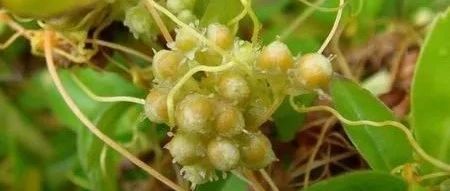Internal Injuries Manifesting as Cold-Like Symptoms in High Temperatures
With continuous rain followed by high temperatures, many people feel as if they have a cold; however, most cases are not actually colds but rather internal injuries that cause discomfort due to the body’s inability to adapt to weather changes.
Here are several cases of cold-like symptoms.
Case One: A 36-year-old male patient presented with a high fever and visited the hospital multiple times, but he was reluctant to take Western medicine or injections. The patient reported that he typically experiences high fever in the afternoon, with dry heat and no sweating, feeling extremely hot. His appetite was poor, and he had infrequent bowel movements, generally once every three days, with difficulty passing stools that were sticky and even contained undigested food. His urine was yellow and scant. He experienced restless sleep with frequent dreams, which he did not have before falling ill. The tongue showed a thick yellow coating and a deep red body. The pulse was slippery and slightly floating. I diagnosed him with Spleen Qi deficiency (脾虚, pi xu) and food stagnation (食积, shi ji) causing the fever. I prescribed a formula of three doses: Chan Tui (蝉蜕, Cicada Slough), Pian Jiang Huang (片姜黄, Curcuma), Bai Jiang Can (白僵蚕, Silkworm), Da Huang (大黄, Rhubarb), Bai Shao (白芍, White Peony), and Wu Mei (乌梅, Mume).
After taking the medicine, the patient reported feeling some abdominal pain, followed by a significant bowel movement, feeling unprecedentedly relieved, but also very tired. After a nap, he found that he did not have a fever in the afternoon. I advised him to continue to regulate his Spleen and Stomach, or he might easily fall ill again.
Case Two: A 29-year-old female patient did not have a fever but had nasal congestion and clear nasal discharge for over a week. She saw a doctor and took cold medicine, but it was ineffective and even led to a slight cough, which, although not severe, significantly affected her work and image. The nasal congestion was minor, but the continuous clear nasal discharge, especially in an air-conditioned work environment, made it difficult for her to communicate with clients and colleagues, and she was concerned about others’ perceptions. Her diet, bowel movements, and menstruation were all normal, and she did not understand why she had nasal congestion and clear nasal discharge. The tongue showed a pale white coating and a slightly red body. The pulse was thin and wiry. I prescribed a formula of five doses: Zhi Shi (枳实, Bitter Orange), Bo He (薄荷, Peppermint), Zhu Ye (竹叶, Bamboo Leaf), Jie Geng (桔梗, Platycodon), Ju Hua (菊花, Chrysanthemum), Jin Yin Hua (金银花, Honeysuckle), Tian Hua Fen (天花粉, Trichosanthes), Yu Zhu (玉竹, Solomon’s Seal), Mai Dong (麦冬, Ophiopogon), Chuan Bei Mu (川贝母, Fritillaria), Zhi Mu (知母, Anemarrhena), and Bai Shao (白芍, White Peony).
The patient later informed me that after taking the first dose, her nasal congestion and discharge improved significantly, and her cough was nearly resolved. After three doses, she felt completely recovered, although she finished all five doses. This patient had issues with the regulation of ascending and descending Qi, with the Gallbladder meridian (胆经, dan jing) not descending, and insufficient Liver Qi (肝气, gan qi) in summer leading to stagnant Lung Qi (肺气, fei qi), resulting in cough and nasal congestion.
Case Three: A 42-year-old male patient, a business executive, had been busy but for the past two weeks found it difficult to work due to dizziness, which worsened with concentration, and sometimes nausea. He could not work effectively. He took medication prescribed by the hospital, but it had no effect. He developed red spots on his body. He experienced excessive sweating, primarily in the upper body, while his lower body was dry. His appetite decreased significantly, and he felt no hunger, with abdominal distension and bowel movements every two days, producing little stool that was sticky and difficult to pass. His urine was short and red with a feeling of heat. He had difficulty falling asleep, poor sleep quality, and was easily awakened. His mouth was dry, and he did not want to drink water. The tongue showed a thick greasy coating and a deep red body. The pulse was slippery and wiry, with a weak left wrist pulse. There was obstruction in the San Jiao (三焦, Triple Burner) water pathways, with turbid Qi not descending and clear Qi not ascending. I prescribed a formula of five doses: Huo Xiang (霍香, Agastache), Pei Lan (佩兰, Eupatorium), Xing Ren (杏仁, Apricot Kernel), Bai Dou Kou (白豆蔻, White Cardamom), Yi Yi Ren (薏米, Coix Seed), Jiao San Xian (焦三仙, Three Burnt Immortals), Hou Po (厚朴, Magnolia Bark), Hua Shi (滑石粉, Talcum), Ban Xia (半夏, Pinellia), Bai Shao (白芍, White Peony), and Wu Mei (乌梅, Mume).
Yesterday, the patient informed me that after taking all five doses, he was nearly fully recovered.
For more articles, please follow our WeChat public account: bcqh2015


